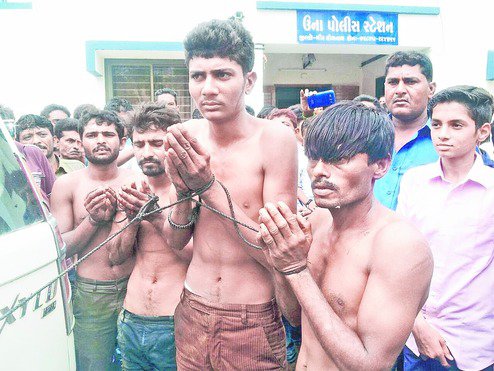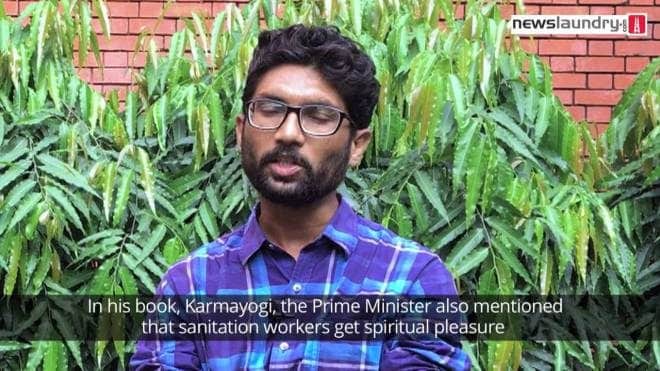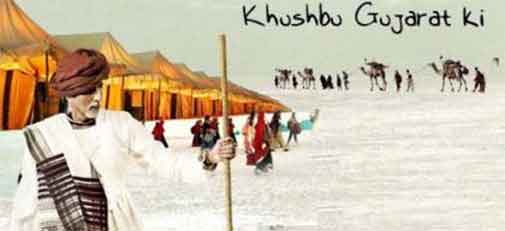BY Abhirup Dam


It seems dalits have decided ‘enough is enough’. As a response to the Una lynching incident, and part of the renewed caste movement across the country, dalits have refused to dispose any animal carcasses in Gujarat. Rotting, stinking carcasses are piling up in the state. Recently, over 1,000 postcards have been sent to Amitabh Bachchan, asking hime to come and experience ‘Badbu Gujarat Ki’. Bachchan did a series of ad campaigns for Gujarat Tourism with the tagline ‘Khushboo Gujarat Ki’.
The Brahmanical notion of hygiene – the obsessive cleanliness, purity and sanctity of places – has created an other in dalits, just like all upper caste practices. Dalits have historically been the dirty, filthy unhygienic lot. From cleaning excreta to the disposing of carcasses, dalits have been ironically used by upper castes to maintain their own ‘hygiene’. Manual scavenging is still practised and encouraged in this country with millions of safai karamcharis denied the dignity of labour.
The Una Dalit Atyachar Ladat Samiti has launched the ‘Badbu Gujarat Ki’ campaign from Kalol near Ahmedabad, and after Amitabh Bachchan, plans to send postcards to the Prime Minister. Bachchan’s campaign emhphasised the idyllic scenes, sights and smells of Gujarat. The recent dalit assertion attempts to identify this manicured image of the state with the notion of brahmanical hygiene, turning it on its head.
Amitabh Bachchan came to Gujarat upon invitation from then Chief Minister Narendra Modi, and talked only about Gujarat having good things like greenery, scent, progressive culture. We have given up disposing carcasses. Hundreds of cows are lying dead and stinking all over the place. Dalits continue to die in gutter, caste division and untouchability have made them suffer.
Jigensh Mevani, Convener, Una Dalit Atyachar Ladat Samiti
Caste Occupations, Self Determination and Beckoning Elections
One thing that has emerged majorly from the recent happenings is that dalits want to come out of the occupations allotted to them traditionally, owing to their low castes. Manual scavenging, disposing off animal carcasses etc. The question of self-determination has come up many a times in this debate and the need for dalits to step out of traditional, oppressed roles have been emphasised.
If a protracted dalit movement needs to be sustained, dalits need to earn dignity for the labour they perform and according to them, it can only happen when caste occupations are shed.
It seems a consolidated, pan-Indian anti-caste movement is becoming a palpable reality each passing day. Consolidation of dalits and organising them politically and socially is slowing transforming a body civic into a body politic. With elections due in several states where dalits form significant part of the population, namely Uttar Pradesh and Punjab, the course of this movement is becoming extremely significant.
Recently, the Birsa Ambedkar Phule Students’ Association (BAPSA) emerged as the single largest party, by polling the highest number of votes as a standalone party in the Jawaharlal University Students’ Union (JNUSU) elections. If JNU is considered to be representative of a larger electoral playground, India could be in for a big surprise.
Courtesy thequint.com

